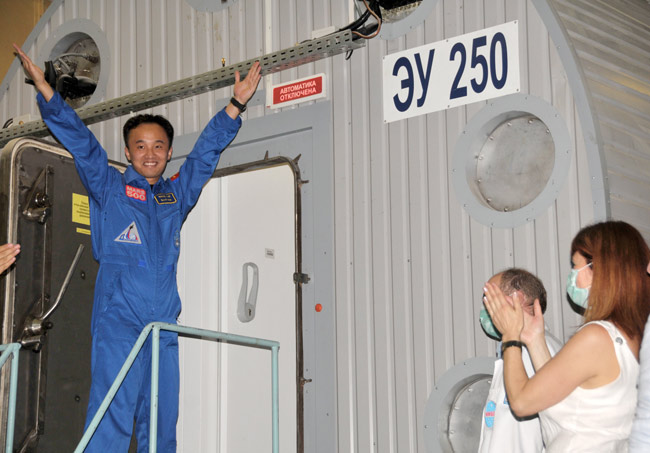China link as volunteers get ready for Mars
A Chinese volunteer joined an international team of researchers in Russia yesterday to start a simulation of a flight to Mars that will keep them locked in windowless modules for 520 days.
This is the time required for a journey to the Red Planet and back to Earth.
 |
|
Wang Yue from China, a participant of the simulated Mars expedition, enters the Mars-500 module in Moscow, capital of Russia, June 3, 2010. |
Wang Yue, 27, a teacher at the China Astronaut Research and Training Center in Beijing, will spend 520 days with three Russians, a Frenchman and an Italian-Colombian in total isolation to imitate a manned flight to Mars.
The "flight" includes a 250-day "outward trip," a 30-day "stay on the planet," and a 240-day "return flight."
The main goal of the experiment is to see how isolation and space food over a long period affect the physical and mental health of astronauts.
Another 180 days would be added to the trip if necessary, trip organizers said.
The volunteers will split their days with eight hours of sleep, eight of work and eight on leisure. They will not have mobile phones or access to the Internet during the mission and there will be a 20-minute delay for simulated contact with Earth.
The crew will be monitored throughout and one of the volunteers is a doctor, who will handle medical emergencies.
Except in emergency, no volunteers will be allowed to quit the experiment as the 550-cubic-meter cabin will be wax sealed.
Wang seemed to be in a good mood and had several days off work before the event, Li Yinghui, China's chief engineer in charge of the trip, told Legal Evening News.
Li told the newspaper the biggest hurdle for the trip was psychological.
"It is a big challenge for a human being to stay in a sealed cabin, isolated from all the familiar things on the Earth," he said.
He said the volunteers would conduct more than 100 "space experiments" during the trip, with a third of the experiments designed to test the limits of human endurance.
Wang is confident in the team and the mission and "all prepared for challenges."
 0
0 






